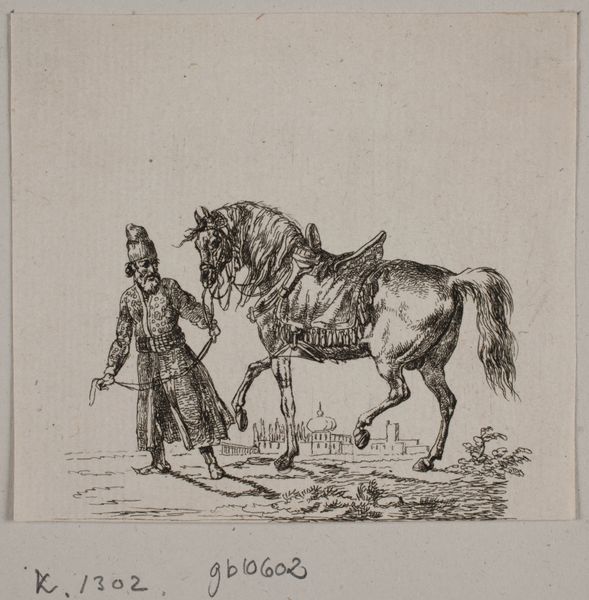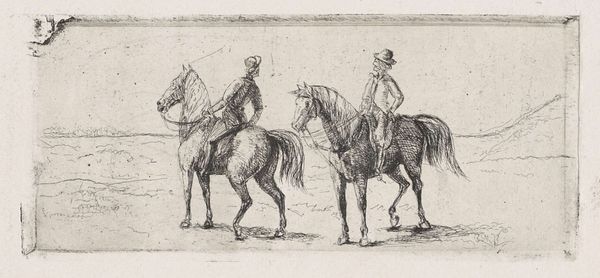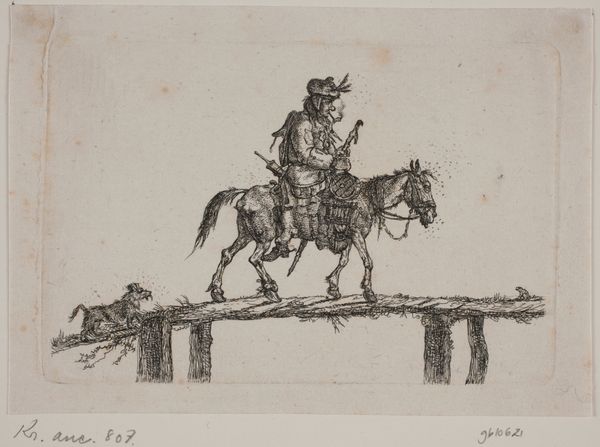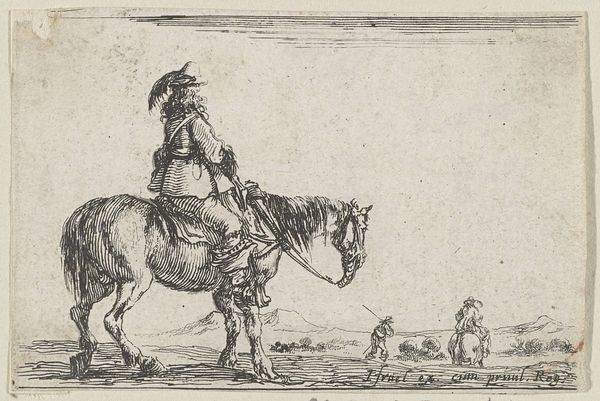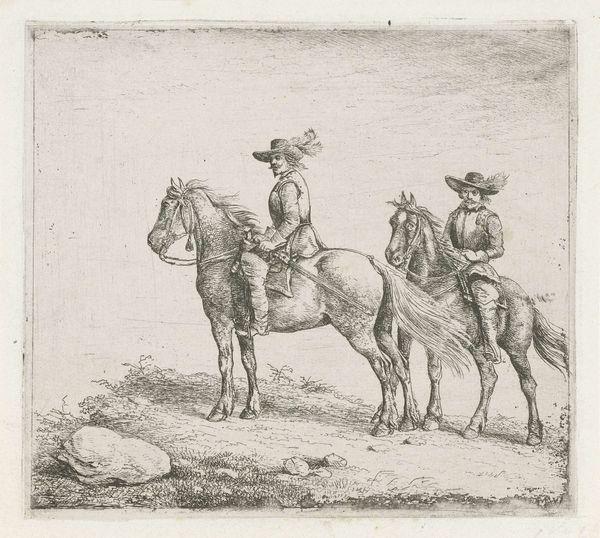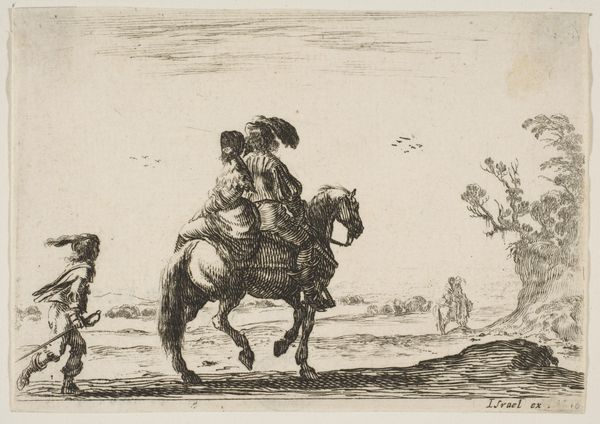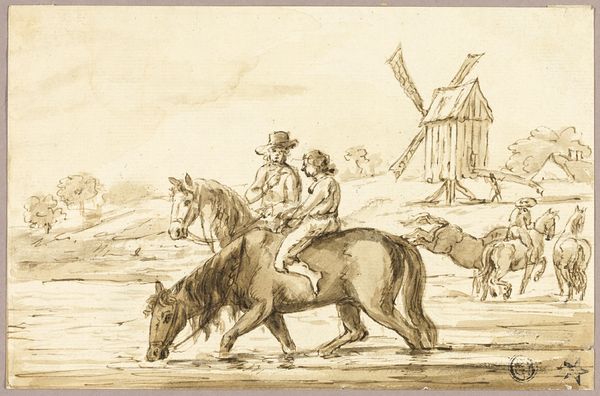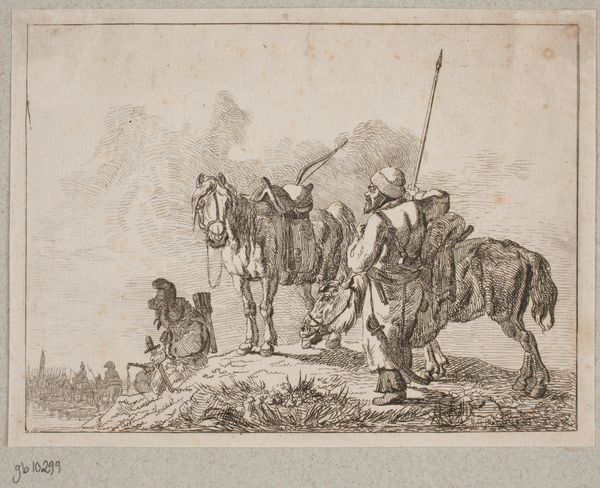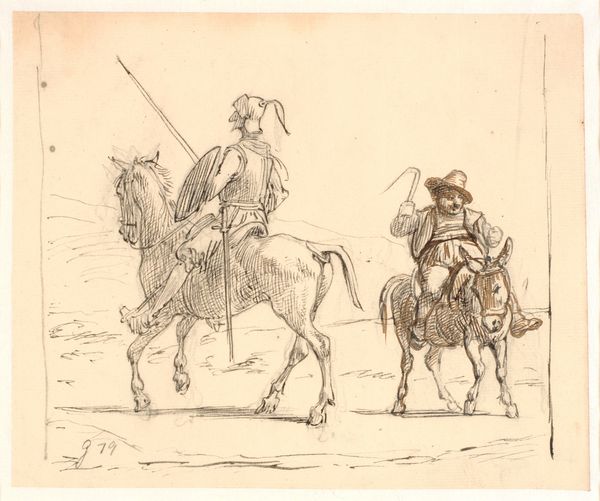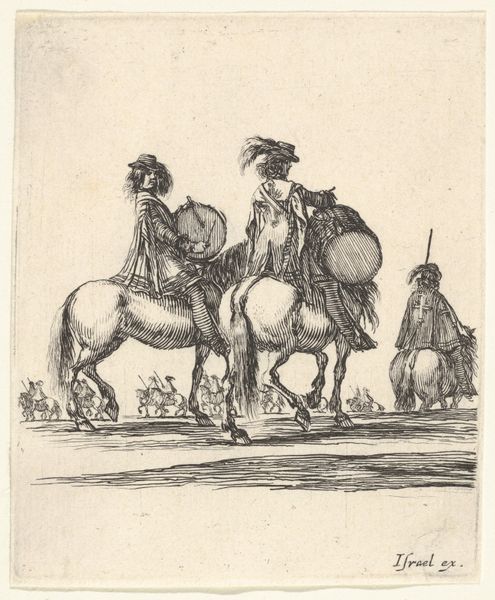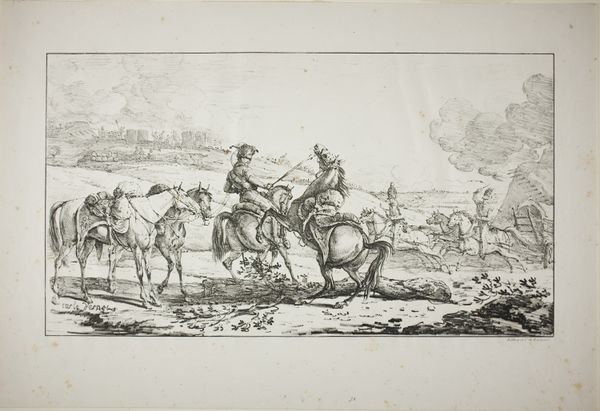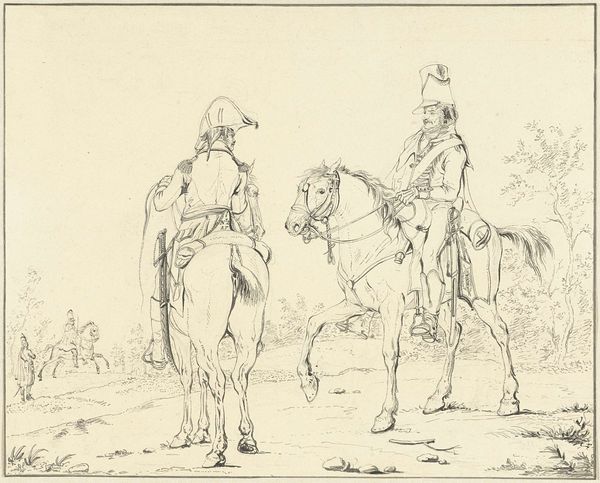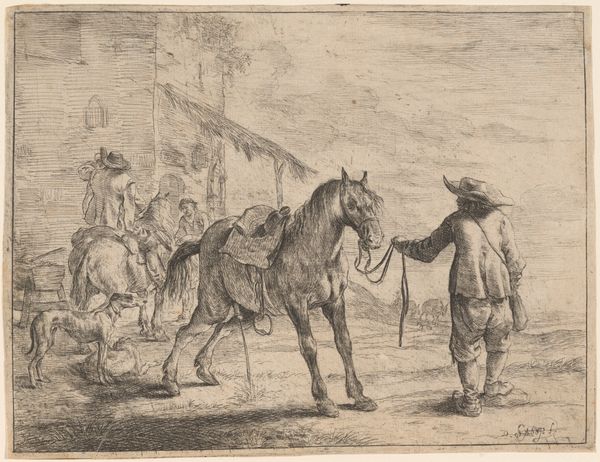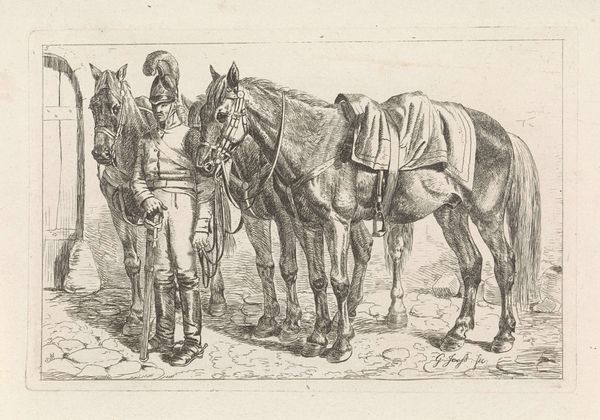
drawing, print, ink, engraving
#
drawing
# print
#
pen sketch
#
landscape
#
figuration
#
ink
#
romanticism
#
engraving
Dimensions: 73 mm (height) x 125 mm (width) (bladmaal)
Christian David Gebauer made this etching, "En baschkir og en kosak," using metal plates and acid to create an image of two men on horseback. The process begins with a metal plate, typically copper or zinc, covered with a waxy, acid-resistant layer. The artist then scratches through this layer with a pointed tool, exposing the metal beneath. When the plate is submerged in acid, the exposed lines are "bitten" or etched into the surface. The depth of the lines, and therefore the darkness of the printed image, depends on the amount of time the plate is left in the acid. After etching, the plate is inked and pressed onto paper, transferring the image. Looking closely, we can appreciate how Gebauer has used this technique to portray the figures and horses with a great level of detail, capturing their textures and forms with precision. Etchings like this one offered a way to circulate images widely, acting as a kind of pre-photographic media. By understanding the material and the making, we recognize how Gebauer’s work connects to broader trends in art, communication, and society.
Comments
No comments
Be the first to comment and join the conversation on the ultimate creative platform.
